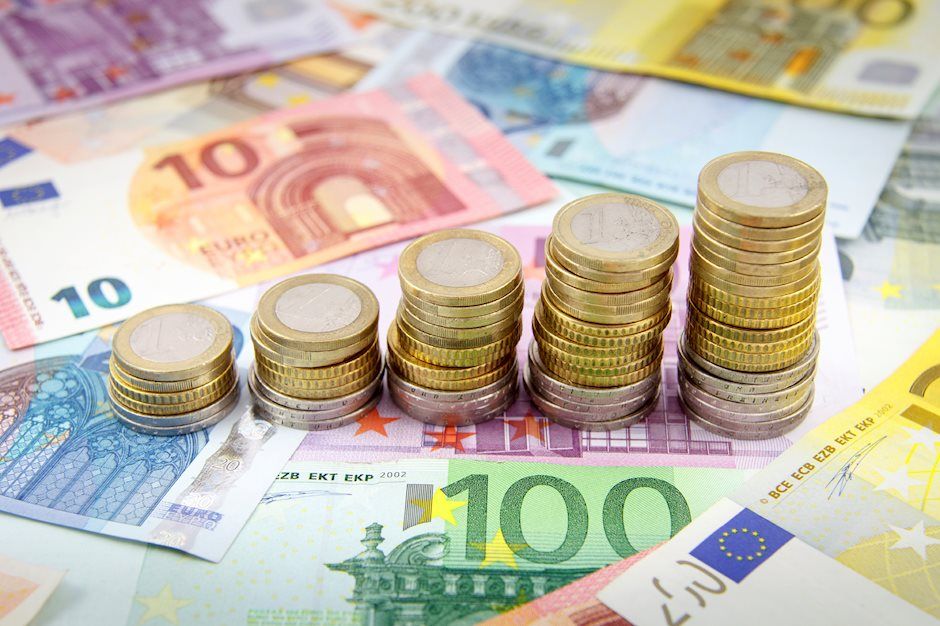UK Budget: Only a fiscal miracle could boost the Pound

This Wednesday 22nd November, the UK Chancellor will deliver his first full Budget. This is expected to be fairly unspectacular, with the main announcements already well flagged including: widening home ownership, a new tech fund, small tweaks to the tax code, tax relief to spur North Sea oil investment, and cash for the NHS. The Chancellor is also likely to remain committed to plans to eradicate the UK’s budget deficit by the mid 2020’s, so we are unlikely to see a major borrowing binge at this Budget.
How to stop Hammond falling on his own sword
The backdrop to this Budget is also worth noting. Growth has been disappointing, weak wage growth and high prices are eroding consumer purchasing power, Brexit negotiations remain fragile and in-fighting in the Conservative Party and cabinet chaos has taken its toll on the pound recently. The Chancellor is also trying to hang onto his job as some high profile Brexiteers’ would love to see one of their own at the helm of the Treasury. Thus, the Chancellor needs to make sure he does enough to stay at Number 11 Downing Street while at the same time trying to make sure it’s his policies, not his performance that grabs the headlines later this week.
Proposals included in the Budget may not be the biggest market-movers either, especially for FX. Hammond’s own fate could determine the pound’s direction. As we have mentioned, if he puts in a weak performance then the Prime Minister may be forced to sack him, weakening May’s government even further. Like a child in the middle of two warring parents, the pound is extremely sensitive to turmoil within Theresa May’s cabinet; last Monday 13th November, GBP/USD dived nearly 1.5% on the back of newspaper reports that she could be replaced. If the Chancellor is also pushed out then we could see a similar decline in sterling.
The pound may be a victim of Chancellor’s frugality
With bleak prospects for the UK’s economic outlook and the OBR set to downgrade the UK’s productivity forecasts it would take a large fiscal expansion to boost the pound in the aftermath of this Budget. With the Chancellor expected to stick firmly to the deficit-cutting strategy of his predecessor, there is no room to go on a borrowing binge to boost investment and growth. Thus the UK’s economy could be left floundering without a government lifeline from this Budget, which is ultimately negative for the pound. GBP/USD is approaching the top of its recent range at 1.3350 – the high from early October, as we lead up to this Budget. If, as we believe, the Budget is negative for the pound from a growth perspective, then investors and traders could sell the pound on rallies later this week.
Hammond’s winners:
Stocks may fare better than the pound from the Chancellor’s Budget proposals. Below we list some potential market-movers.
-
FTSE 350: Any cut or freeze to business rates in the coming years: this would be mildly positive in the short-term for the broad FTSE 350 index.
-
FTSE 100: A pledge to continue to cut the rate of corporation tax to 17% over the coming years. The chance of this actually happening is hanging in the balance so if it is announced then the surprise factor could boost UK equities.
-
Airlines/ airport operators: They have pleaded with the government to cut or scrap air passenger duty, which could send a powerful signal that the UK is open for business even after we leave the EU. If this announced on Wednesday then the surprise factor could see a decent boost to airline stocks, including AIG and Easyjet, which have had a rough couple of months.
-
Car makers: The Chancellor is expected to announce a raft of measures to help to boost the uptake of driverless cars. Depending on the extent of the measures this could be good news for the leading companies in this space. Google has had the largest head start in this space from both a hardware and software perspective, so its stock price could be boosted by the Chancellor on Wednesday. Audi (Volkswagen) and Mercedes Benz could also benefit as Audi was the first car brand to be granted a licence to test this technology. Mercedes Benz already has some automated features on some of its models. Thus, car makers who already use this technology could be the big winners from this Budget. Interestingly, none of the major players in this space are British. Other car makers could also benefit if the Chancellor states that cleaner diesel engines will be exempt from any measures targeted at high polluting vehicles.
-
Homebuilders: While the government is expected to make homebuilding its set piece for this Budget the impact on the major homebuilders could be dependent on the scale of the measures and the amount of land available to build on. Also, if the Chancellor hopes to reduce the cost per unit for new homes, at the same time as construction sector wages are reportedly rising, measures in this Budget could actually hurt the homebuilders, so the stock price reaction may not be positive.
- Consumer stocks: The public sector pay cap of 1% could be doubled or even indexed to CPI at this Budget, if Labour-led pressure gets to the Chancellor. We believe that some public sector wage rises will be approved in this budget, however, they could be fairly modest. If the Chancellor supports a more generous settlement for public sector workers then consumer discretionary stocks in the FTSE 100 could benefit including Next, M&S, Tui, Merlin and even Sky if investors believe that public sector wage packets are likely to lead to an increase in spending in the near-term.
Author

Kathleen Brooks
XTB UK
Kathleen has nearly 15 years’ experience working with some of the leading retail trading and investment companies in the City of London.

















